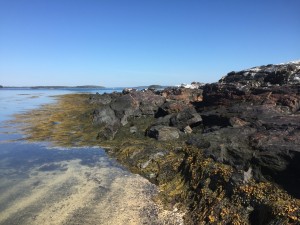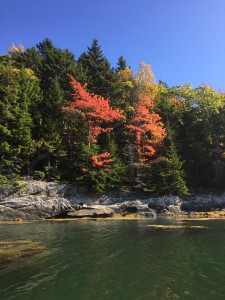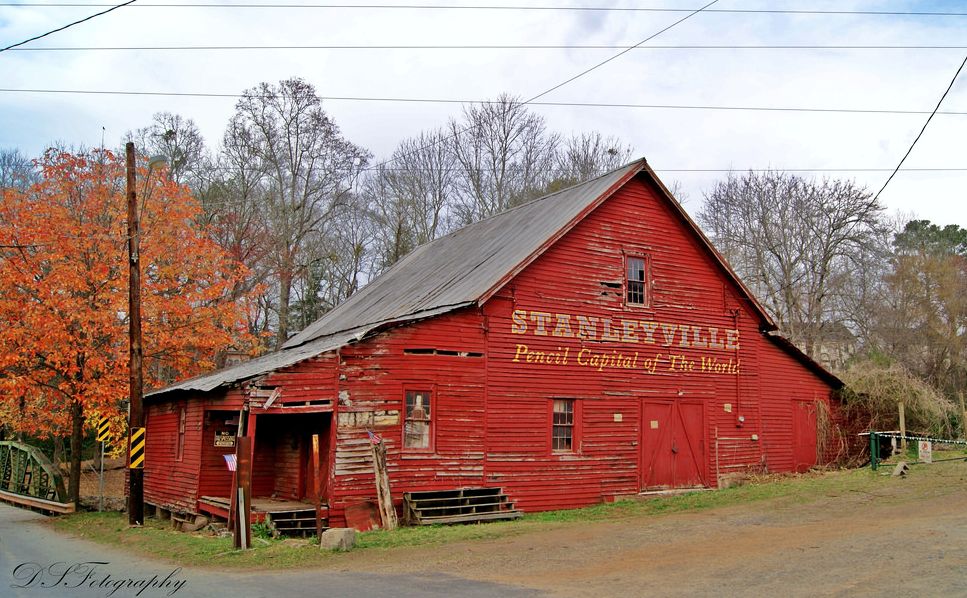Perhaps you too wait for a day or three before taking up an anticipated book. Just so for me with Upstream, Mary Oliver’s recently released volume of selected essays. I didn’t hurry for two reasons: first, I’d read a number, most, of the essays before when they appeared in earlier volumes; I’d even read one in first light before it appeared in the journal I edited then. Second, and more pertinently, I wanted those few days before opening the door of the book’s cover and stepping first into one, then another, of its rooms. I knew that, even as many would not be wholly new, taking up residence would feel new – we, the essays and I, would differ, sometimes greatly, from what we were at our last meetings.
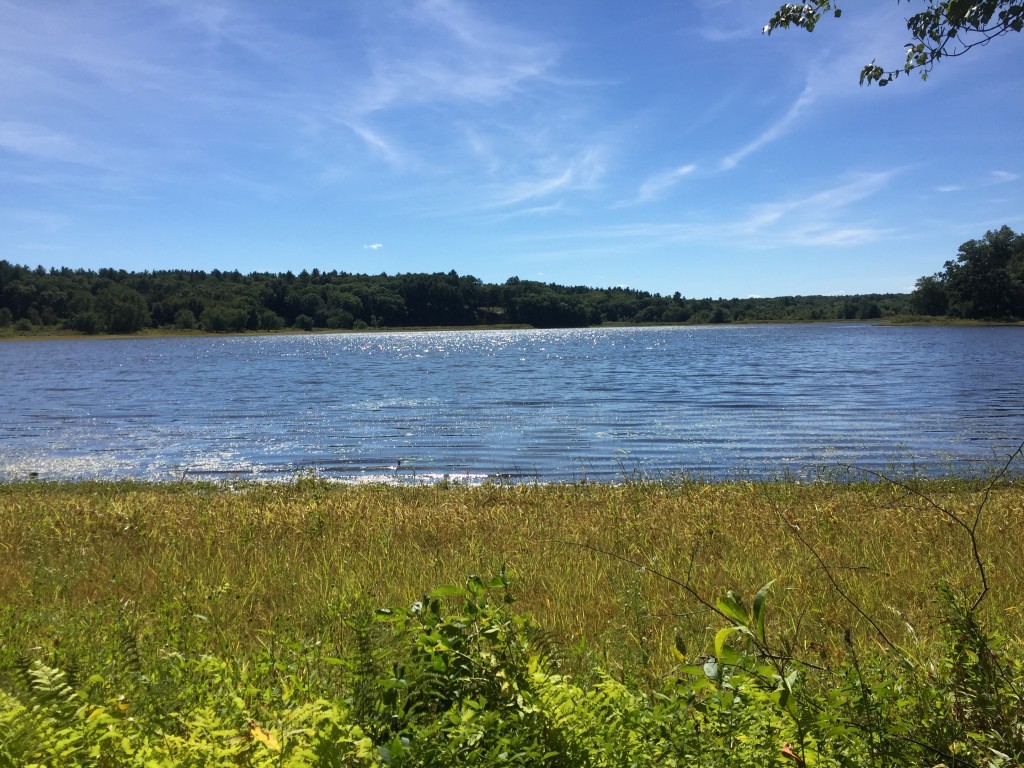
Fairhaven Bay – upstream for Henry Thoreau.
Morning coffee’s the time for my day’s first reading before turning to work, and so, facing east, I began Upstream, and soon, I heard familiar resonance – here, even as Emerson is Oliver’s favorite Concordian, was the not-so-distant presence of Henry Thoreau, cloaked in his famous coat metaphor. Walden readers are likely to recall its appearance at the end of the book’s second paragraph, where Thoreau has been speculating about his potential readership:
Perhaps these pages are more particularly addressed to poor students. As for the rest of my readers, they will accept such portions as apply to them. I trust that none will stretch the seams in putting on the coat, for it may do good service to him whom it fits.
And here is Oliver in a paragraph late in the clear waters of her book’s title essay, which is, among other things, about becoming, or, to use one of Thoreau’s favorite verbs, “realizing” oneself:
Sometimes the desire to be lost again, as long ago, comes over me like a vapor. With growth into adulthood, responsibilities claimed me, so many heavy coats. I didn’t choose them, I don’t fault them, but it took time to reject them. Now in the spring I kneel, I put my face into the packets of violets, the dampness, the freshness, the sense of ever-ness. Something is wrong, I know it, if I don’t keep my attention on eternity. May I be the tiniest nail in the house of the universe, tiny but useful. May I stay forever in the stream. May I look down upon the windflower and the bull thistle and the coreopsis with the greatest respect.
Both writers would have us try on lives, but wear, finally, only the one that doesn’t “stretch the seams” or burden us with heavy responsibilities chosen by others. It takes “time to reject them,” for Henry Thoreau the two-plus years at Walden Pond, where, even as he cast off other coats, he was busy already with the one that he would offer in 1854.
As I read this paragraph, associations burst like popcorn in a popper, when suddenly the oil reaches temperature, and where there were only little seeds there are now white flowers of corn spilling up and out, so many, an overflow – the kneeling to earth, the attention on eternity, the nail, the house, the water, the flowers…
Oliver’s essay ends soon after with a single sentence paragraph: “Attention is the beginning of devotion.”
Simone Weil wrote, “absolute attention is prayer.”
And Thoreau, “Only that day dawns to which we are awake.”
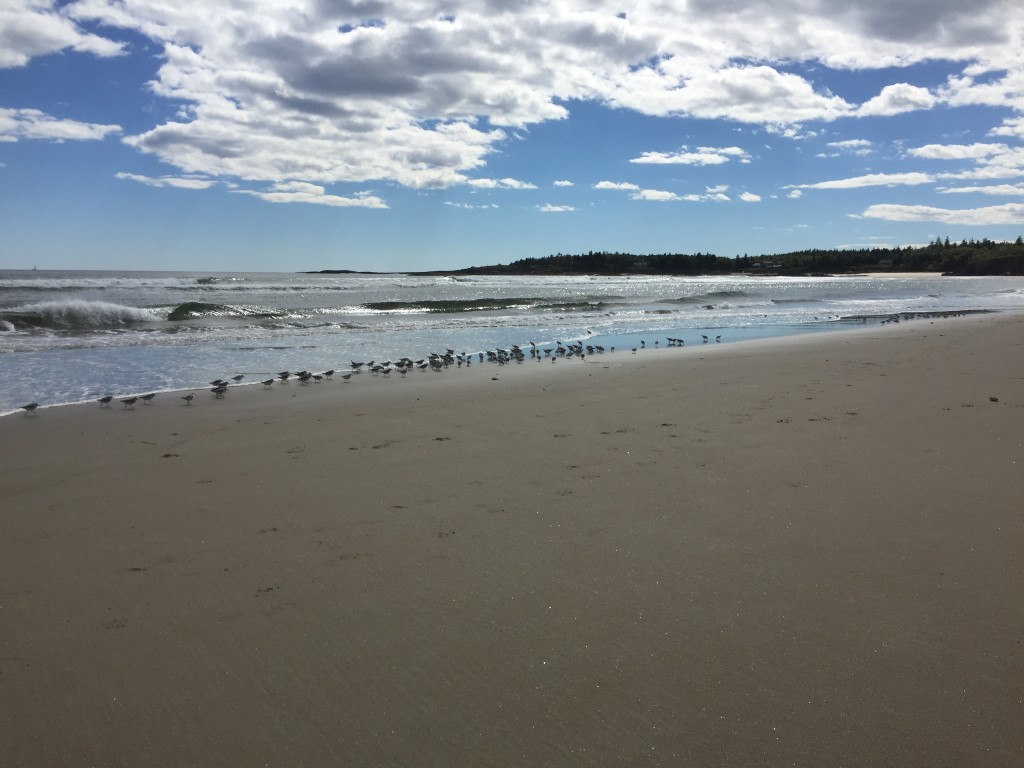
Downstream – not Oliver’s coast, but mine.

